7 Incredible Things You Can Learn from 'Doubting Thomas' in the Bible
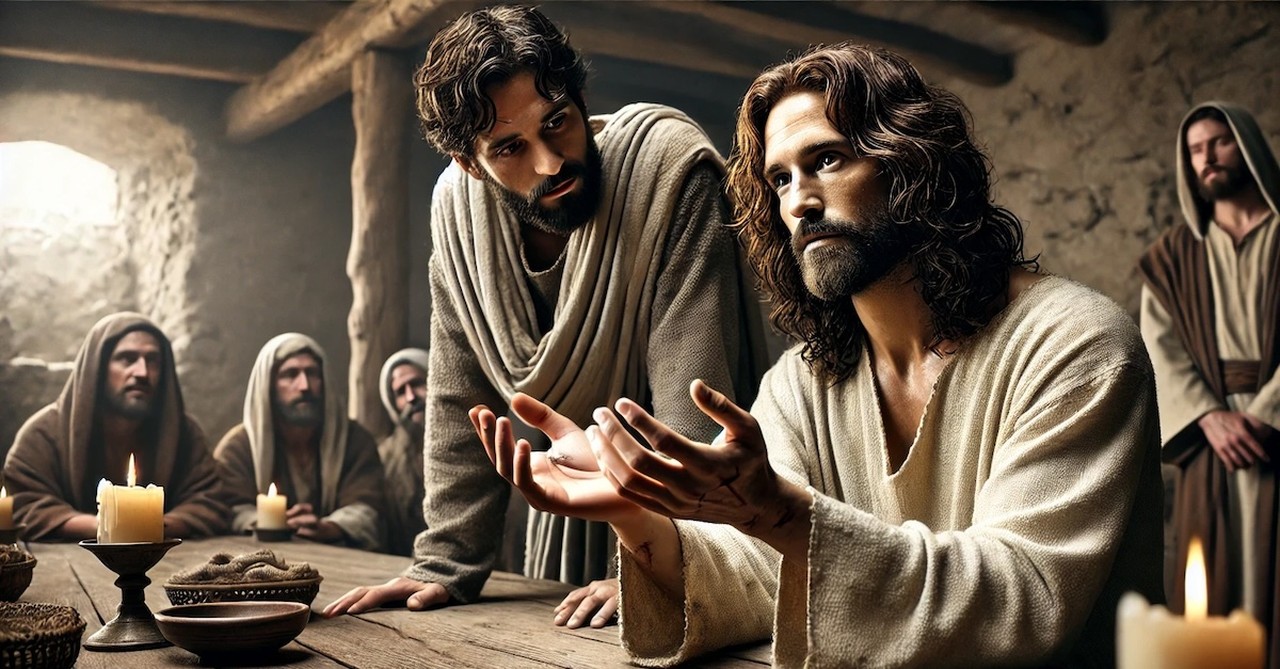
The twelve disciples were all common men of relatively low standing when were called to follow Jesus. Jesus loved them, redeemed them, and ultimately equipped, empowered, and entrusted them to do incredible things in His name. Nevertheless, the twelve disciples were also known to be brash, selfish, short-sighted, and even cowardly at times. One of them, Thomas, is famously known for his doubt and disbelief. Even today, many in the church refer to this chosen apostle as “Doubting Thomas” after he doubted the reports of Christ’s resurrection.
Is this reputation warranted and nickname fairly earned? Maybe. However, there are many incredible things we can learn from Thomas beyond his characteristic doubt and disbelief. Here are seven:
1. Thomas Did Not Want to Live without Jesus
Most people are familiar with Thomas’ disbelief when it came to the news that Jesus was alive and had appeared to the other disciples. In fact, it is one of the few instances where Thomas is featured in any of the gospels (John 20:24-25). However, it is not the only story in which Thomas’ personality and character are revealed. In two previous stories, we encounter a man who loved Jesus with a passion that is rarely acknowledged.
For example, in John 11, we read that Jesus had decided to travel to the village of Bethany to visit Mary and Martha after the death of their brother Lazarus. When the rest of the disciples tried to talk Jesus out of venturing so close to Jerusalem, where the Pharisees were headquartered, Thomas stepped forward, saying, “Let us also go, that we may die with him” (John 11:14). Naturally, this a bit dramatic on Thomas’ part. Talk about anticipating the worst. However, though his natural pessimism is on full display, we cannot deny his courage at that moment. If he was going to die, he was going to die at Jesus’ side. Even if temporary, Thomas seems to demonstrate a willingness to “take up his cross” and follow Jesus. This is a response born of love and loyalty more than doubt and fear.
Furthermore, at the Last Supper, Thomas questioned Jesus’s comments about His eventual departure, asking, “Lord, we don’t know where you are going, so how can we know the way?” (John 14:5) This was after Jesus had told the Twelve, “My Father’s house has many rooms; if that were not so, would I have told you that I am going there to prepare a place for you? And if I go and prepare a place for you, I will come back and take you to be with me that you also may be where I am. You know the way to the place where I am going” (John 14:2-4). Of course, Thomas failed to see the big picture, always expecting the worst. Nevertheless, in his love for Jesus, he was deeply troubled whenever the thought of being separated from Him was presented.
2. God Has a Unique Plan for Siblings, Including Twins

2. God Has a Unique Plan for Siblings, Including Twins
SLIDE 1 OF 5
The apostle John includes an interesting detail about Thomas that is sometimes overlooked. Did you know that three times in John’s gospel, Thomas is also referred to as “Didymus,” the Greek word for “double” or “twin” (John 11:16; 20:24; 21:2)? By all accounts, this leads us to believe that Thomas had a twin brother or sister somewhere in the world. Unfortunately, we know nothing about this sibling. We don’t know what kind of relationship they had with Thomas. We don’t know their personality. We don’t even know whether they eventually became a follower of Jesus or not. Even though there were at least two sets of brothers among the Twelve, Simon (Peter) and Andrew and James and John, Thomas’ twin was not among them for whatever reason.
What does this tell us? Not much. However, one thing it does reveal is that God has a unique plan for individual siblings, including twins. Unfortunately, some siblings may feel unseen or overshadowed because of their brothers or sisters, especially if their sibling has a stronger personality, attracts more attention, has more talent, or even has a ministry that seems to eclipse their own. As a result, the competitive, comparative nature of siblings may get the better of them. However, from the many siblings we read about in the Bible, we see that God does not compare brothers and sisters the same way we do. Jesus had a plan for Thomas that was different from his twin and even the other apostles (Jeremiah 1:5). What was God’s plan for Thomas’ twin? We do not know. What we know is that those who are called and chosen to follow Jesus Christ are never overlooked or overshadowed by their brothers or sisters, at least not in God’s eyes. Rather, they are the “hidden in the shadow” of God’s wings (Psalms 17:8), which is a glorious place to be.
Photo credit: DALL.E 2024 via ChatGPT AI Technology
3. Some People Grieve in Solitude
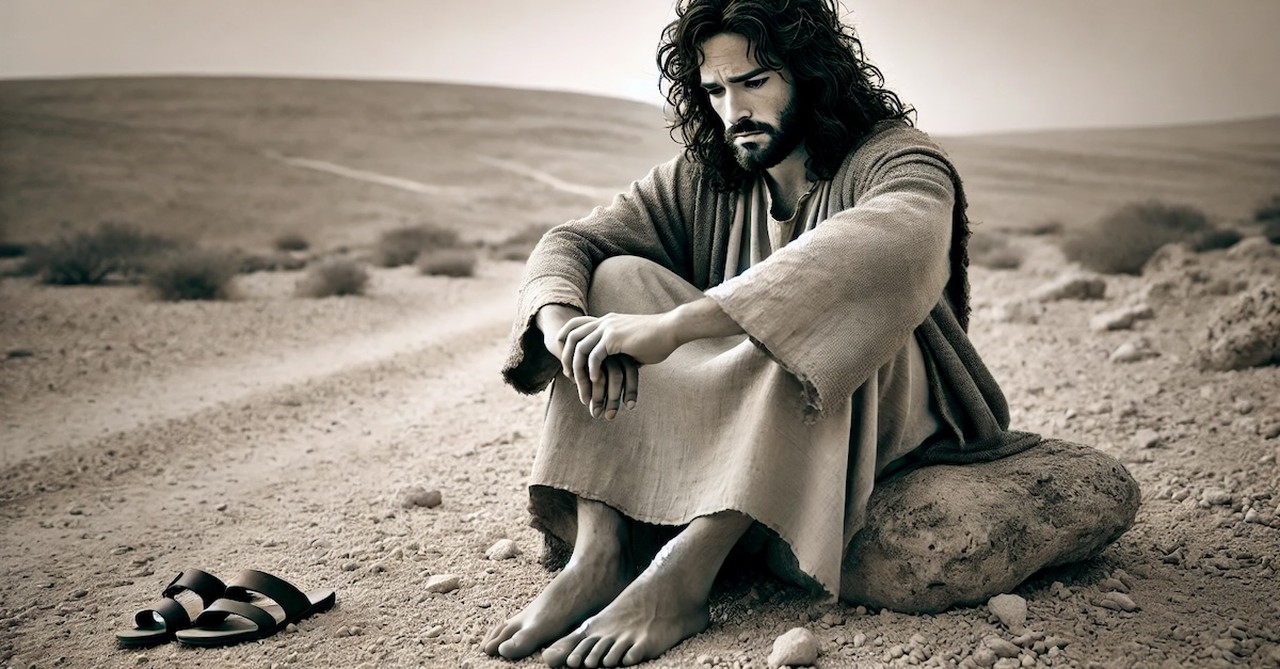
3. Some People Grieve in Solitude
SLIDE 2 OF 5
With the exception of Judas Iscariot, the rest of the disciples had gone into hiding after Jesus was arrested. The apostle John tells us, however, that “Thomas (called Didymus) was not with them when Jesus came” (John 20:24). Where was he? We do not know. However, for someone as emotional and characteristically melancholy as Thomas, it makes sense that he may have wanted to grieve in solitude. That is okay.
Everyone handles grief in different ways. Thomas was certainly not alone in his sadness. The rest of the disciples may have felt just as confused and even betrayed by the death of Jesus as he did. However, it may have been very difficult for him to relate to the others or find comfort in even their shared sadness. In a very practical and understandable way, some people need to get away and process their emotions alone. Given what we know of Thomas’ personality and love for Jesus, Christ’s death would have been devastating. Thomas’ absence from the group, therefore, doesn’t necessarily reveal a lack of comradery or loyalty. Rather, as pastor John MacArthur write in his book Twelve Ordinary Men, “what set Thomas apart from the other ten was not that his doubt was greater, but that his sorrow was greater.” (163) This was a man who felt things incredibly deeply. From love to sorrow, the emotions for Thomas were often extreme. Naturally, there is a blessing in being able to love someone with that kind of depth. However, with that passion also comes an intensity of grief and sorrow that is sometimes hard to fathom. Thomas was that kind of person.
Photo credit: Created using DALL.E 2024 via ChatGPT AI technology.
4. Our Ultimate Hope Is in the Ressurection
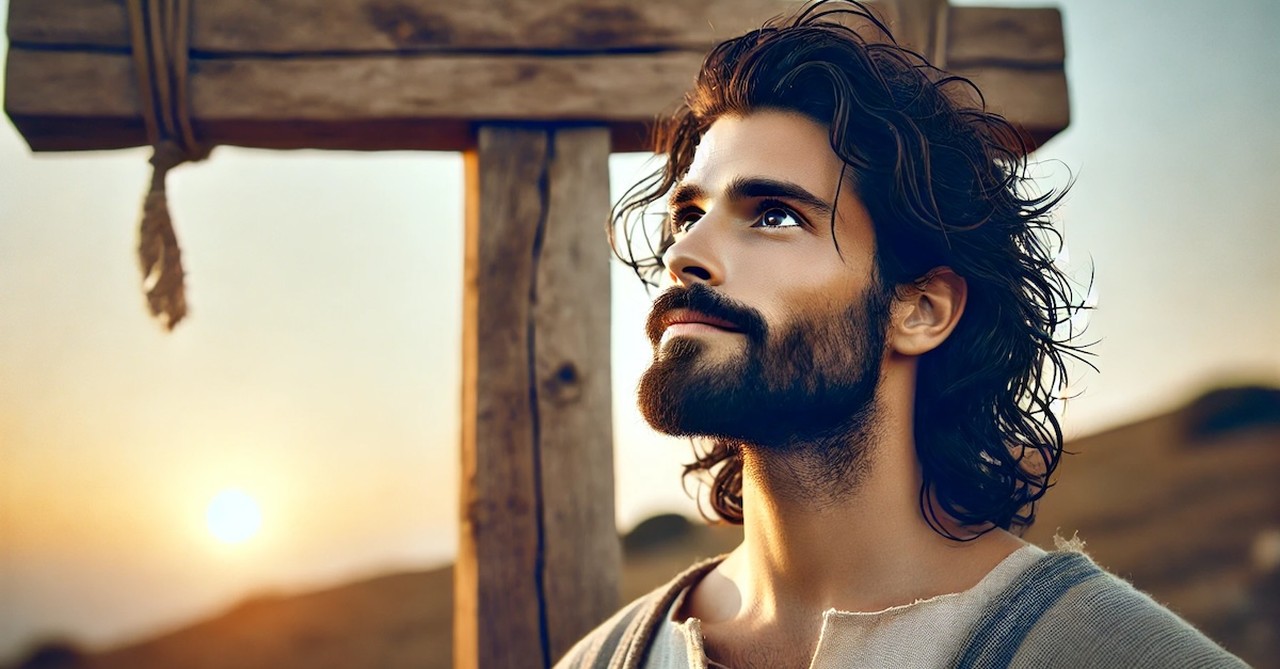
4. Our Ultimate Hope Is in the Ressurection
SLIDE 3 OF 5
Understandably, all of the disciples were devastated by the death and departure of their beloved friend, rabbi, and master. Although Jesus had warned them of His crucifixion and provided hints of His eventual resurrection, the disciples failed to comprehend many things about Christ’s mission. Believing Jesus to be gone forever, the disciples, Thomas included, were despondent and confused, making the three days following Christ’s death the darkest and most hopeless three days of their lives.
The love of Christ was on full display at the cross, the pain of which He endured for the sins of the world. However, the hope of Christ’s followers is not in the death of Jesus Christ. It is not in His burial either. Rather, our hope is in the power and glory of His resurrection. Without the resurrection of Jesus Christ and the empty tomb that followed, the life of Jesus ends in tragedy. In failing to anticipate the resurrection, Thomas, like the rest of the disciples, was living in the aftermath of that tragedy. It was the only reality he knew. Absent hope, divine understanding, and faith, Thomas’ response was understandably one of confusion and gloom. Likewise, without the resurrection, we, too, have little hope. Instead, the apostle Paul reminds us that, for those who are in Christ, “we have been buried with Him through baptism into death, so that as Christ was raised from the dead through the glory of the Father, so we too might walk in newness of life” (Romans 6:4). Also, “if the Spirit of Him who raised Jesus from the dead dwells in you, He who raised Christ Jesus from the dead will also give life to your mortal bodies through His Spirit who dwells in you” (Romans 8:11). Christ’s resurrection is the ultimate reason to rejoice. The disciples, unfortunately, had to wait three days for that celebration.
Photo credit: Created using DALL.E 2024 via ChatGPT AI Technology
5. Jesus Sympathizes with Our Weakness
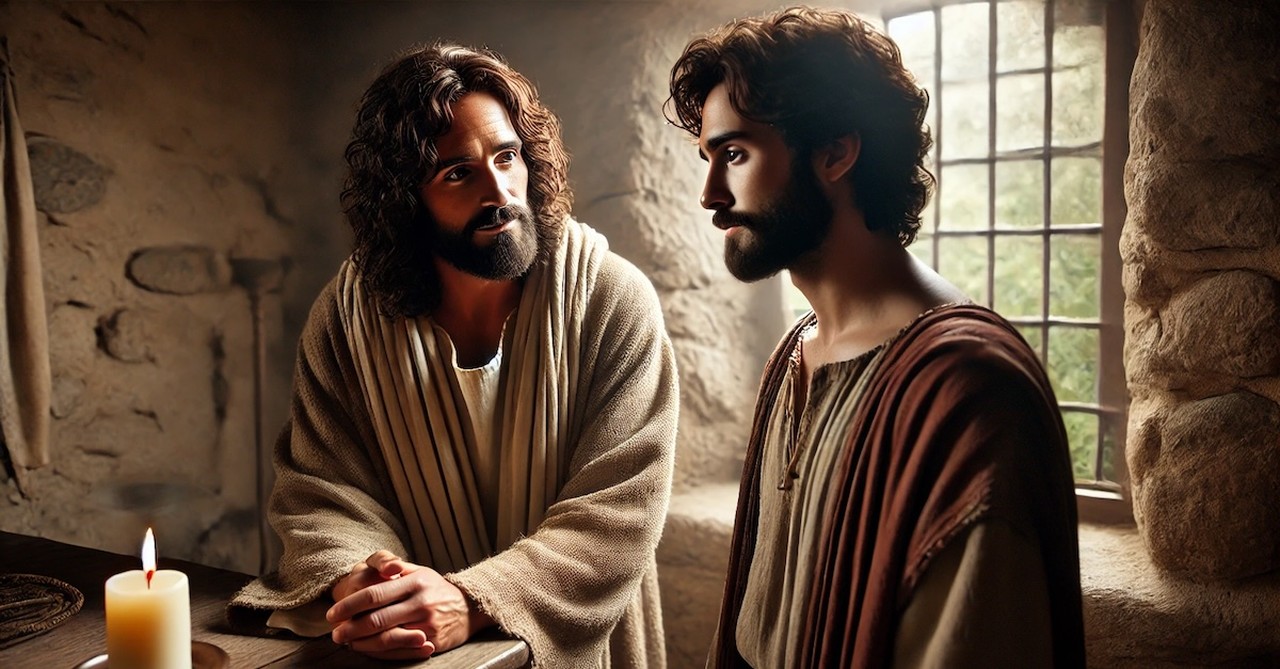
5. Jesus Sympathizes with Our Weakness
SLIDE 4 OF 5
The death of Jesus had filled Thomas and the disciples with immense sorrow as they were left questioning everything they knew. Each had left everything to follow Jesus. What was it all for? Was their faith in Jesus misplaced? Where would they go now? For Thomas, the despair was overwhelming, so much so that when the other disciples told him that Jesus had appeared to them, he famously replied, “Unless I see the nail marks in his hands and put my finger where the nails were, and put my hand into his side, I will not believe” (John 20:25).
Obviously, Thomas’ doubt does reveal a lack of faith. However, before we are quick to judge, we must remember that 1). the other disciples needed reassurance from Jesus also. They, too, were shown Jesus’ hands and side for confirmation that it was indeed Him (John 20:20). 2). Thomas anticipated the resurrection as much as they did, i.e., not at all. 3). Thomas’ doubt was the byproduct of sorrow and an unwillingness to embrace false hope. To put it another way, Thomas loved and missed Jesus so much that he refused to allow himself to entertain any hope that might eventually be taken away.
Nevertheless, eight days after Jesus first appeared to the disciples, Jesus returned and looked directly to Thomas, addressing his doubt and meeting him in his moment of grief. Jesus even went so far as to show Thomas the very thing he said he needed to believe. “Then he said to Thomas, ‘Put your finger here; see my hands. Reach out your hand and put it into my side. Stop doubting and believe’” (John 20:26-27). Yes, Jesus did challenge Thomas’ unbelief, but He also showed incredible grace and patience as He looked to redeem and restore His beloved disciple to confidence and faith. Likewise, the author of Hebrews reminds us that Christ, who was tempted in all things, sympathizes with our weaknesses (Hebrews 4:15). In His grace, Christ helps us overcome those weaknesses, and He works to redeem our faults, inconsistencies, and failures. Thomas is a living example of this.
Photo credit: Created using DALL.E 2024 via ChatGPT AI Technology
6. Blessed Are Those Who Have Not Seen But Still Believe
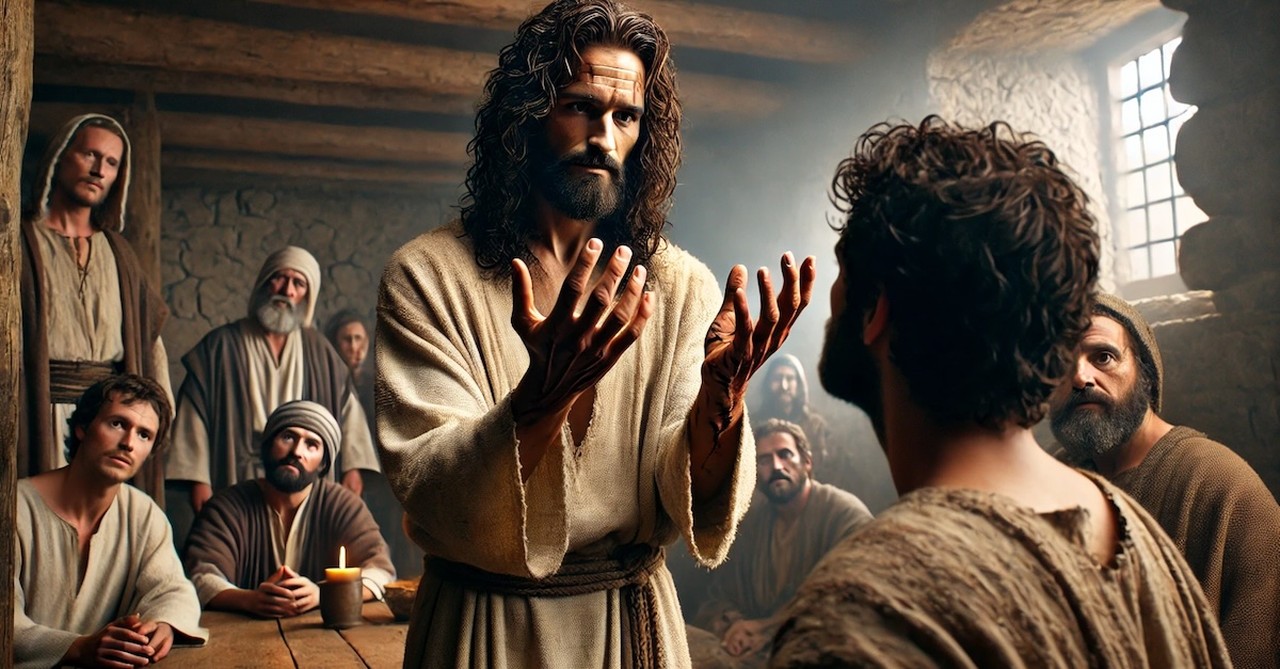
6. Blessed Are Those Who Have Not Seen But Still Believe
SLIDE 5 OF 5
At the resurrection, Jesus appeared to Thomas and the disciples, but in that moment, He also reminded His followers that “because you have seen me, you have believed; blessed are those who have not seen and yet have believed” (John 20:29). This, of course, highlights the importance of faith in the life of Christ’s followers, both then and now.
Thomas had been a direct eyewitness to the many miracles of Jesus; however, when it came to the news of Christ’s resurrection, he doubted what he had not seen with his own eyes. However, the author of Hebrews writes that “faith is confidence in what we hope for and assurance about what we do not see” (Hebrews 11:1). As Christians, “we live by faith, not by sight” (2 Corinthians 5:7). Therefore, Jesus promises that blessed are those who have not seen but still believe. Despite the moments when we lack faith, we know that Christ remains faithful (2 Timothy 2:13; 2 Thessalonians 3:3). Furthermore, “He will supply all of our needs according to the riches of His glory in Christ Jesus” (Philippians 4:19).
7. Christ Overcame Thomas’ Doubt and Disbelief
Like the rest of the disciples, Thomas was human and deeply flawed. He was pessimistic, gloomy, and negative at times. However, in His grace, Jesus was patient with Thomas’ shortcomings and tender-hearted and forgiving in his moments of disbelief. Despite his faults, Thomas’ moments of doubt did not disqualify him from future ministry.
Forgiven and redeemed, Thomas would grow to become more like Christ every day (2 Corinthians 3:18), and in Christ, he was a “new creation” (2 Corinthians 5:17). The man who often anticipated the worst in every situation had been transformed by Christ into a bold, faith-filled apostle filled with eternal hope and joy. He would also become an outspoken leader and evangelist who Jesus trusted to continue His ministry, steward His gospel, and help build His church. Having touched the scarred hands of the risen Christ, Thomas would proclaim, “My Lord and my God” (John 20:28)! This is a declaration of faith and fidelity that far outweighs any doubt Thomas may have had. The world may remember Thomas for his doubt; Christ, however, remembered Thomas for his faith and faithfulness. Through His resurrection, Christ had conquered sin and death. In the life of Thomas, He had conquered doubt and disbelief. Imagine what Christ can do in your life when you look to Him with similar faith.
Photo credit: Created using DALL.E 2024 via ChatGPT AI Technology

Originally published June 25, 2024.









